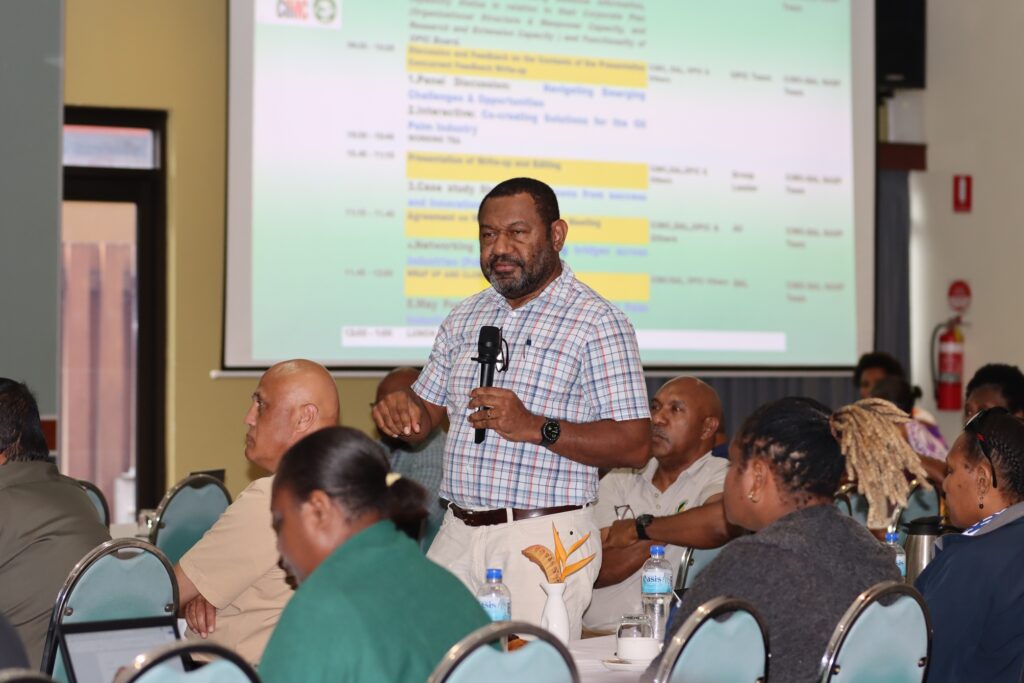LAE, April 8, 2025 – New Britain Palm Oil Ltd (NBPOL) Country Manager and Chairman of the PNG Palm Oil Producers Association, Robert Nilkare, has warned that over-regulation and poor implementation of policy reforms could hamper the growth of Papua New Guinea’s successful palm oil industry.
Speaking at the National Agriculture Industry Public-Private Sector Partnership Conference in Lae, Nilkare acknowledged the government’s recent efforts to introduce a national palm oil policy – the first since independence – but cautioned that its top-down approach and lack of genuine industry consultation risked undermining the very sector it aims to support.
“We were never privy to the final version of the policy. It felt like it was forced upon us,” Nilkare said. “That’s fine – it’s the government’s prerogative. But without real input from the industry, we won’t be able to grow, expand, or contribute meaningfully to the economy.”
Nilkare, whose company employs close to 27,000 people – making it PNG’s largest private sector employer – argued that the industry’s success to date is largely due to the absence of overbearing regulation, allowing producers to respond directly to global market demands.
He compared the palm oil sector’s relative growth to stagnating commodities such as coffee, cocoa and rubber, which have long been governed by statutory bodies. “When those bodies were created, did production increase or decrease?” he asked pointedly. “Palm oil has grown without one – because we’ve been allowed to run like a business.”
Nilkare said PNG’s agriculture development hinges on three critical factors: infrastructure, law and order, and security of land tenure. “If we can’t get those three things right, agriculture will not grow – no matter how many policies we write,” he said.

He called on government planners to stop building roads to “the middle of nowhere” and instead focus on connecting agricultural hotspots, including neglected coffee-producing areas. “There are places with existing crops ready to be harvested, but no road access. If we could bring in all the village oil palm in West New Britain, we would need to build another mill.”
Nilkare also raised concerns about the recurring challenge of customary land mobilisation, reiterating that 95% of land in PNG is under customary ownership. He highlighted past efforts to develop mechanisms for landowners to monetise their land without surrendering it to the state, but lamented that these recommendations were often ignored.
“We’ve given good recommendations over the last 15 to 20 years. But if nothing happens, you start to ask, what’s the point?” he said. “Our industry is ready to expand. But unless the government acts on infrastructure, law and order, and land security, we won’t move forward.”
Nilkare stressed that palm oil is PNG’s largest non-extractive foreign exchange earner, after oil, gas, and mining. He noted that NBPOL also produces ethanol for export to countries like South Korea, and that 100% of its beef and sugar is consumed domestically.
In closing, he reminded stakeholders that “talking about agriculture” without implementing real solutions is futile.
“You can talk about it until the cows come home – but unless you create the right environment for investment and growth, the industry won’t develop,” Nilkare said. “We are ready to help. But we need action, not just policy documents.”